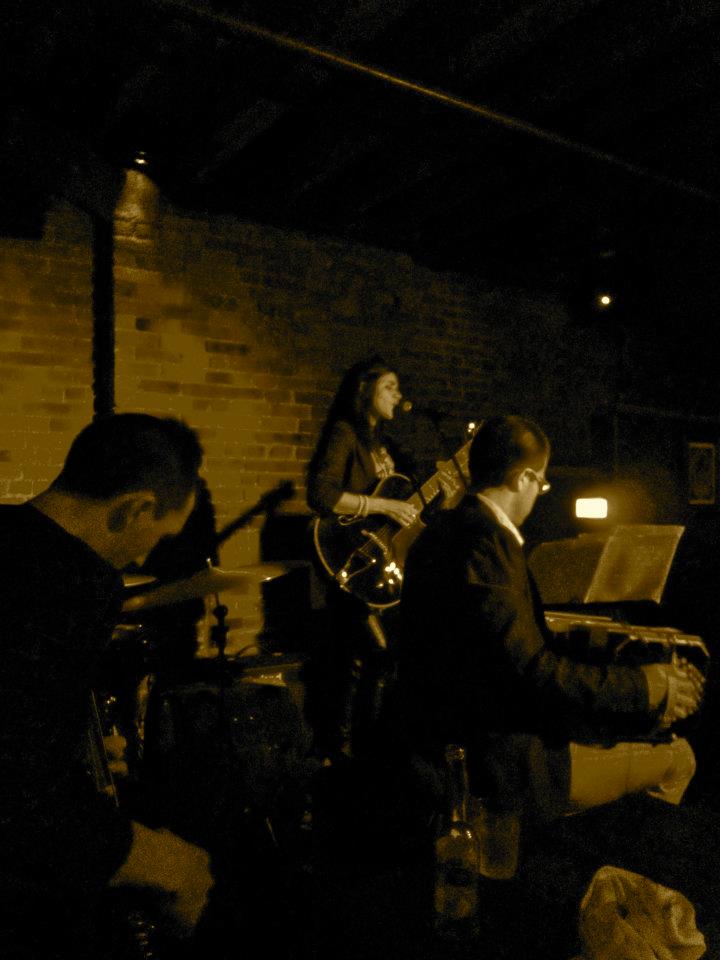On a late Wednesday night in the Malbec Room at Novecento, I listened for the first time to Tango Conspiracy, a band fronted by the guitarist-singer Jimena Fama whose music is self-described as “Electro Dub,” “Funk,” “Tango,” “Lounge,” and “Bassa Nova.” My prejudices for dancing tango bend toward the traditional repertory, but I must say that I liked Fama and her band’s clean, insistent sound. I suppose it could be described as “nuevo,” but I would position it as “contemporary” or “post-modern” because of its relationship to time and our perception of it.
Traditional tango is nostalgic in the stories it tells, usually of homesickness or romantic loss, and in the bygone eras it recalls. But such nostalgia does not so much trap one in the past as pull it into the present and the future. Each song has been danced before and will be danced again, but always with a difference, whether in partner, circumstance, venue, or interpretation. It takes, in short, a long view of life.
Post-modern tango, by contrast, narrows the lens to the present and near future: the tango is sexualized, its repetitive pulse promising a delayed but still imminent climax. Fama’s vocals, when she sings at all, are not about recuperating the past, but are a present-tense aspect of the sound texture, co-equal with the instruments. This contrasts with the empathetic psychology of memory and expectation that characterizes the traditional style. Similarly, the dancing that arises naturally from such music is sensual and voyeuristic, suggestive of immediate desire rather than hope and memory shared.
None of that should be taken as negative criticism. It merely recounts the sense I made of what I was hearing, which is well-calculated for a venue that, although upstairs, feels underground, both spatially and aesthetically. There are times when that hits the spot, and both the band and the venue do it well.
For more on Jimena Fama and Tango Conspiracy, visit here. For information on Novecento, click here.
